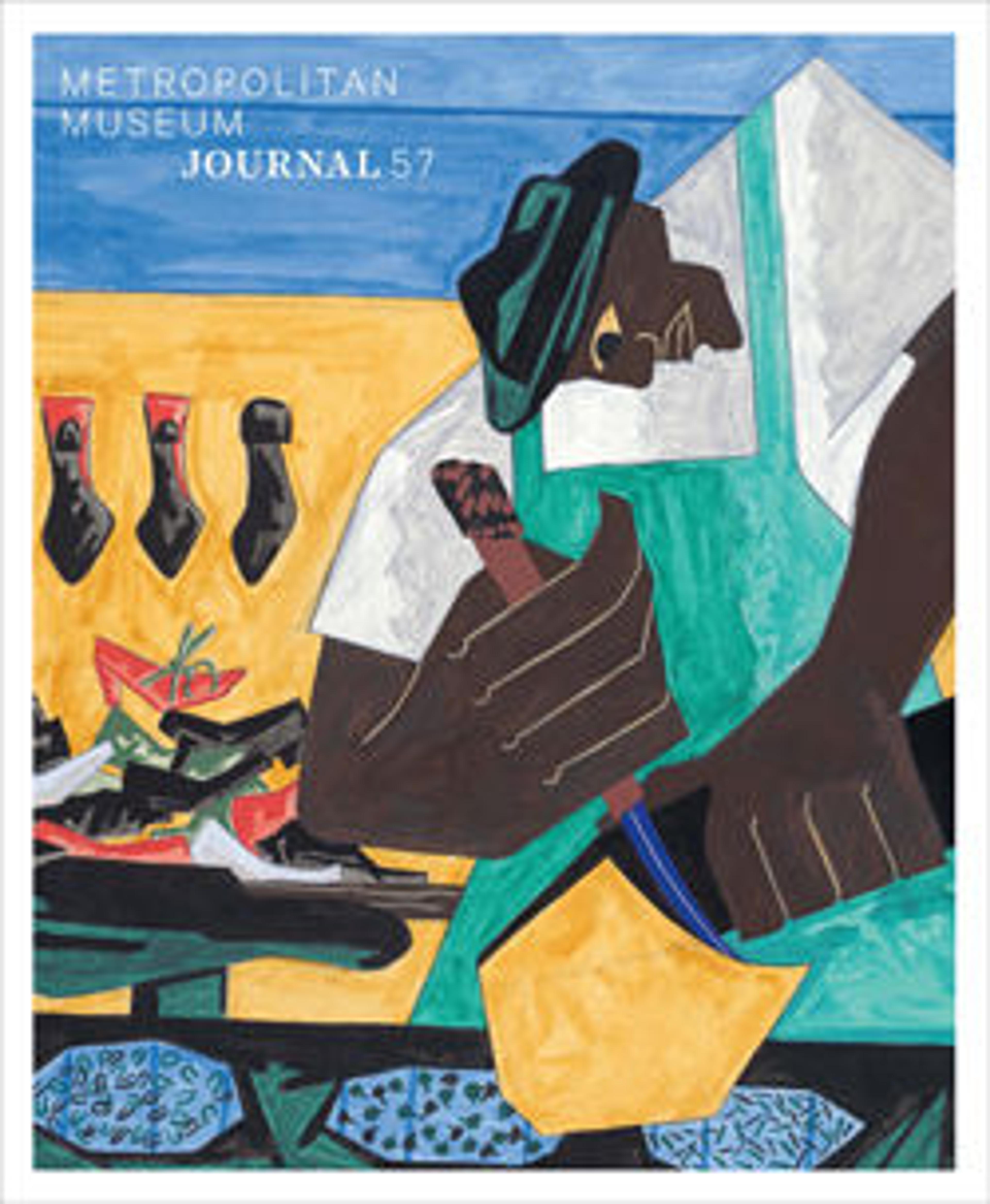The Battle of the Little Bighorn
On June 25, 1876, a combined force of Cheyenne and Lakota warriors destroyed the command of U.S. Lieutenant Colonel George Armstrong Custer. His troops had attacked their village of camp circles stretching along the Little Bighorn River in what is now Montana. Sixteen-year-old Steven Standing Bear took part in the battle and observed the chaos depicted here. He created this sweeping representation more than forty years later, combining six conflict episodes into one scene with highly detailed individual warriors and soldiers. Although members of Custer’s troops are known to have worn buckskin jackets, Standing Bear depicted only one figure in the fringed, pale-yellow garment (at center), surely intended to represent Custer himself.
Artwork Details
- Title: The Battle of the Little Bighorn
- Artist: Standing Bear/ Mató Nájin (Minneconjou Lakota/Teton Sioux, 1859–1933)
- Date: ca. 1920
- Geography: Made in Pine Ridge Reservation, South Dakota, United States
- Culture: Minneconjou Lakota/ Teton Sioux, Native American
- Medium: Pencil, ink, and watercolor on muslin
- Dimensions: 36 in. × 8 ft. 9 1/2 in. (91.4 × 268 cm)
- Credit Line: The Charles and Valerie Diker Collection of Native American Art, Gift of Valerie-Charles Diker Fund, 2017
- Object Number: 2017.718.2
- Curatorial Department: The American Wing
More Artwork
Research Resources
The Met provides unparalleled resources for research and welcomes an international community of students and scholars. The Met's Open Access API is where creators and researchers can connect to the The Met collection. Open Access data and public domain images are available for unrestricted commercial and noncommercial use without permission or fee.
To request images under copyright and other restrictions, please use this Image Request form.
Feedback
We continue to research and examine historical and cultural context for objects in The Met collection. If you have comments or questions about this object record, please contact us using the form below. The Museum looks forward to receiving your comments.
